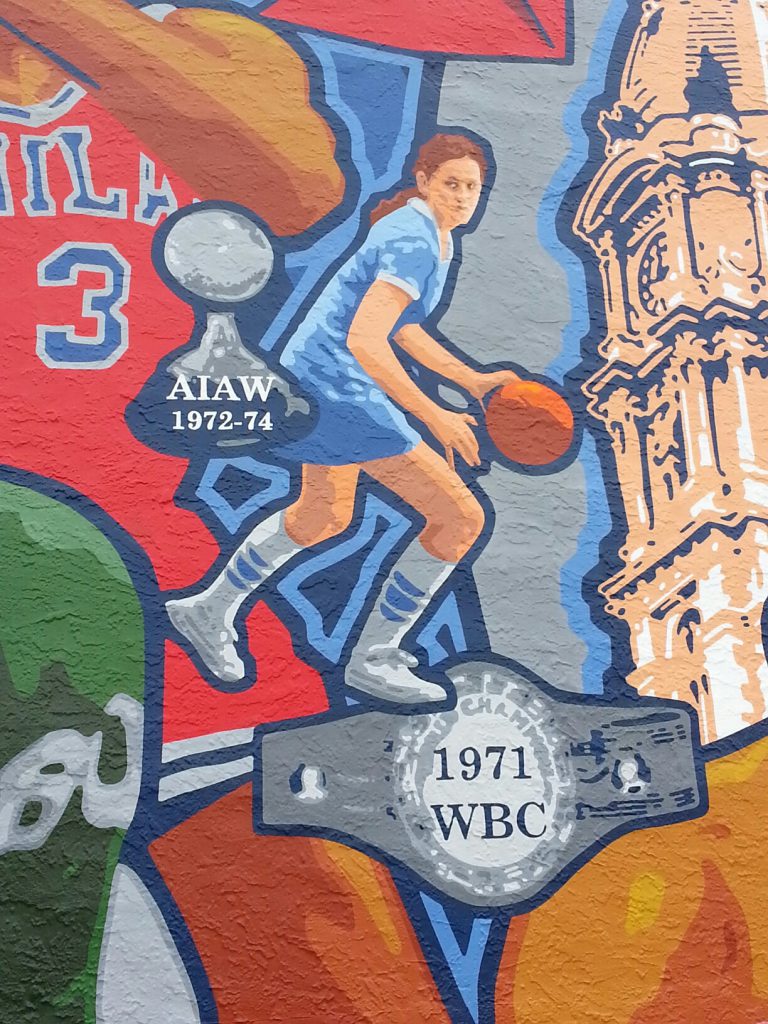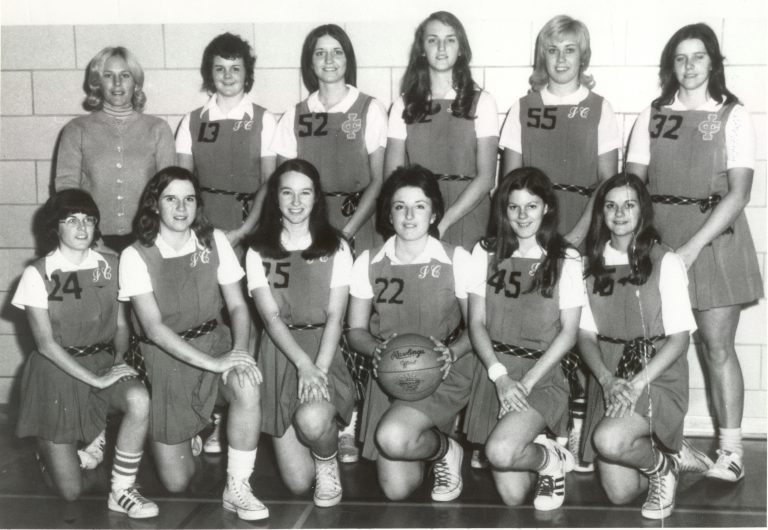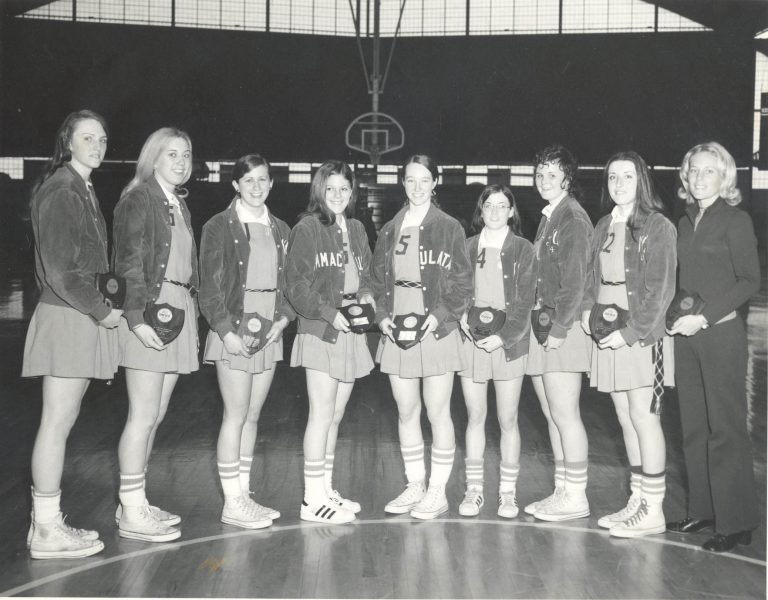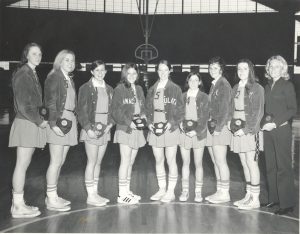Mighty Macs
Essay
The Immaculata College women’s basketball teams of the early 1970s, known as the Mighty Macs, won the first three national tournaments of the Association of Intercollegiate Athletics for Women (AIAW) in 1972, 1973, and 1974. Basketball brought the Immaculata community together, and Immaculata’s success showcased the high quality of basketball played by Philadelphia’s Catholic schools.
The success of the Mighty Macs built upon a tradition of basketball at Immaculata that began in 1939 and drew skilled Philadelphia area female basketball players to its all-women’s campus. The highlight during the early years was defeating the Temple Owlettes in 1946, winning the unofficial City Championship and handing Temple its first defeat in four years.
After the Commission on Intercollegiate Athletics for Women (CIAW) experimented with full-court basketball during the 1969-70 and 1970-71 seasons, women’s college basketball officially changed in 1971 with the formation of the AIAW, and the game transitioned from the half-court game (three players on each side) to the full-court game with five players on the court. At Immaculata, Coach Cathy Rush (b. 1947), a graduate of West Chester State College (later West Chester University), implemented strategies used in the men’s game. Players trained by running to gain endurance, and during the 1971-72 season the training paid off. The Mighty Macs went 24-1, with their only loss to West Chester in the regional finals.
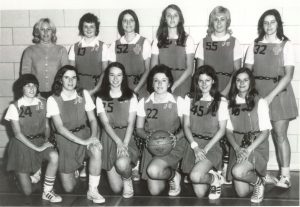
As a small private liberal arts college, Immaculata did not have a recruiting budget or athletic scholarships, and its starters carpooled to campus for morning practices. Seeded fifteenth in the 1972 national tournament, the team almost did not make the trip to Illinois because of the cost. To raise money, players sold toothbrushes. Sister Mary of Lourdes (1915-2005), the college president, persuaded each of the trustees to pay for plane fare for one player. Ultimately, they raised enough money to fly eight players (out of twelve) and one coach on standby to the tournament. They won their first three games, then defeated archrival West Chester for the national championships.
The 1973 team went undefeated, beating Queens College in the finals, and the 1974 team defeated Mississippi State College for Women in the finals. In addition, the Mighty Macs participated in the first televised women’s college basketball game, defeating the University of Maryland on January 27, 1975. The 1975 and 1976 teams also reached the finals, losing to Delta State University in Mississippi both years.
Cathy Rush left Immaculata in 1977 after compiling a record of 149-15. Some of her star players went on to become successful women’s college basketball coaches. Among them, Marianne (Crawford) Stanley (b. 1954) led Old Dominion University to the AIAW championship in 1979 and 1980 and to the NCAA Women’s Division I Basketball Championship in 1985. Theresa (Shank) Grentz (b. 1952) coached Rutgers to the 1981 AIAW national championship, and Rene (Muth) Portland (1953-2018) coached for twenty-seven seasons at Penn State University.
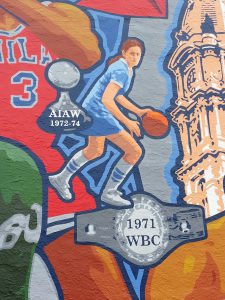
The implementation of Title IX of the Education Amendments of 1972 and the subsequent inclusion of women’s sports in the NCAA spelled the end of the Mighty Macs’ dominance, as they did not have the financial resources to offer athletic scholarships to team members as their competitors did. However, the Mighty Macs continued to be remembered. The adventures of the first championship team were loosely portrayed in the award-winning feature film The Mighty Macs (2009). Coach Cathy Rush was enshrined in the Naismith Memorial Basketball Hall of Fame in 2008, and the 1972-1974 national championship teams were inducted in 2014. Rush (2000), Grentz (2001), and Stanley (2002) have also been inducted into the Women’s Basketball Hall of Fame.
Karen Guentheris Professor of History at Mansfield University and author of Sports in Pennsylvania (2007), published by the Pennsylvania Historical Association. (Author information current at time of publication.)
Copyright 2016, Rutgers University
